
Hamra: The Pulsating Heart of Beirut
Hamra is one of Beirut's most vibrant and eclectic neighborhoods, offering a blend of rich history, diverse cultures, and modern-day allure. Known for its bustling streets and lively atmosphere, Hamra attracts both locals and tourists with its array of cafes, restaurants, shops, and cultural venues. Strolling through Hamra, you'll encounter a mix of old and new, from charming, historic buildings to contemporary establishments. The famous Hamra Street is the neighborhood's main artery, lined with boutiques, bookstores, and trendy cafes. This street is the perfect place for people-watching and soaking in the local vibe. Hamra is also a cultural hub, home to theaters, art galleries, and the renowned American University of Beirut (AUB). The presence of AUB contributes to the youthful energy and intellectual buzz that permeates the area. Don't miss the chance to explore the university's picturesque campus, which offers stunning views of the Mediterranean Sea. Foodies will find Hamra a paradise, with a plethora of dining options ranging from traditional Lebanese cuisine to international fare. Whether you're in the mood for a quick bite or a leisurely meal, the neighborhood's diverse culinary scene has something to satisfy every palate. By night, Hamra transforms into a vibrant nightlife district, with numerous bars, pubs, and live music venues. It's the perfect place to experience Beirut's legendary nightlife and mingle with locals and fellow travelers alike.
Local tips in Hamra
- Wear comfortable shoes as Hamra is best explored on foot.
- Visit the American University of Beirut for a peaceful escape and beautiful views.
- Try local dishes at the many Lebanese restaurants for an authentic culinary experience.
- Check out the local theaters and art galleries for a dose of culture.
- Experience the nightlife at Hamra's bars and live music venues.
Hamra: The Pulsating Heart of Beirut
Hamra is one of Beirut's most vibrant and eclectic neighborhoods, offering a blend of rich history, diverse cultures, and modern-day allure. Known for its bustling streets and lively atmosphere, Hamra attracts both locals and tourists with its array of cafes, restaurants, shops, and cultural venues. Strolling through Hamra, you'll encounter a mix of old and new, from charming, historic buildings to contemporary establishments. The famous Hamra Street is the neighborhood's main artery, lined with boutiques, bookstores, and trendy cafes. This street is the perfect place for people-watching and soaking in the local vibe. Hamra is also a cultural hub, home to theaters, art galleries, and the renowned American University of Beirut (AUB). The presence of AUB contributes to the youthful energy and intellectual buzz that permeates the area. Don't miss the chance to explore the university's picturesque campus, which offers stunning views of the Mediterranean Sea. Foodies will find Hamra a paradise, with a plethora of dining options ranging from traditional Lebanese cuisine to international fare. Whether you're in the mood for a quick bite or a leisurely meal, the neighborhood's diverse culinary scene has something to satisfy every palate. By night, Hamra transforms into a vibrant nightlife district, with numerous bars, pubs, and live music venues. It's the perfect place to experience Beirut's legendary nightlife and mingle with locals and fellow travelers alike.
Iconic landmarks you can’t miss
Al Raouche Rocks
Discover Beirut's iconic Al Raouche Rocks: Majestic limestone formations, stunning views, and a vibrant coastal atmosphere await!
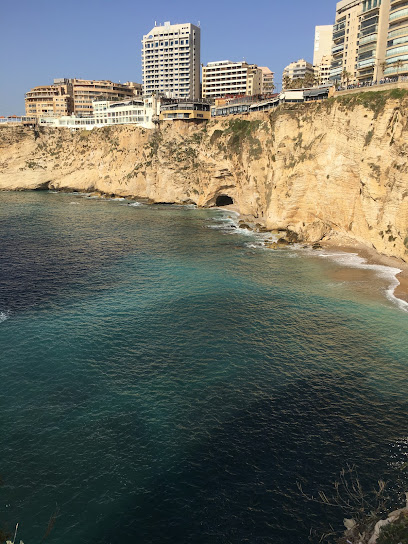
Martyrs' Square
Explore Beirut's Martyrs' Square: a historic landmark, cultural hub, and symbol of Lebanese resilience in the heart of the city.
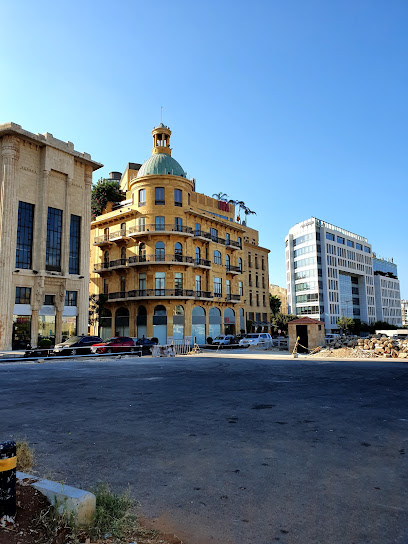
Ka3kaya
Experience authentic Lebanese flavors in Beirut's vibrant Hamra district. A taste of tradition in a cozy setting.
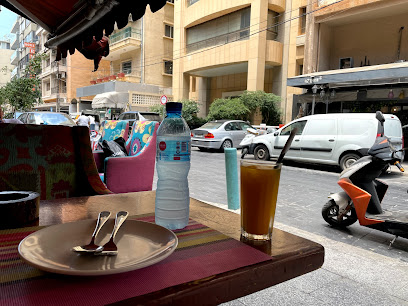
Place de l'Étoile
Explore the iconic Place de l'Étoile, home to the magnificent Arc de Triomphe and a vibrant hub of Parisian culture and history.
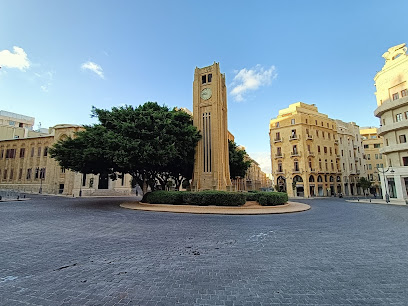
Hamra Urban Gardens
Experience modern comfort and Lebanese hospitality at Hamra Urban Gardens, a vibrant community hub in the heart of Beirut.
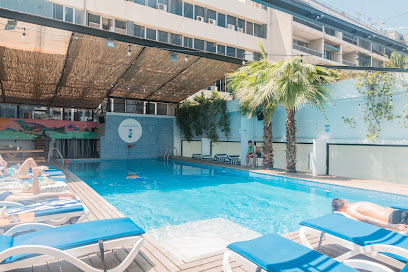
St. Nicolas Stairs
Experience Beirut's vibrant art and culture at the iconic St. Nicolas Stairs, connecting history and community in the heart of the city.
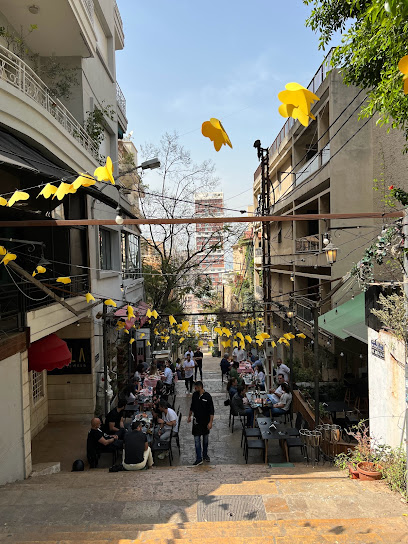
American University of Beirut Archaeological Museum
Explore millennia of Near Eastern history at the American University of Beirut's Archaeological Museum, home to a vast collection of ancient artifacts.
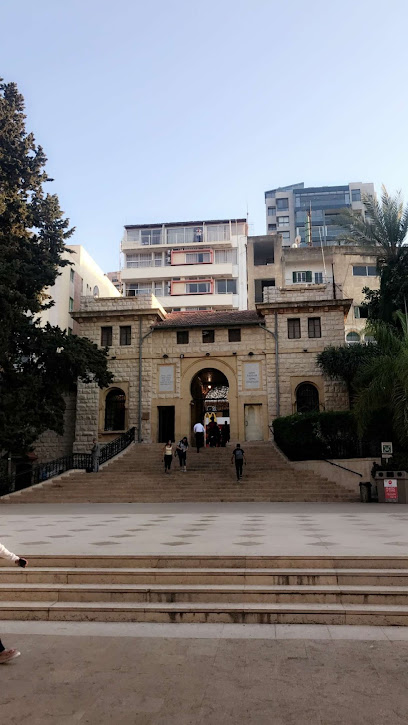
Roman Forum of Beirut
Discover the ancient Roman heart of Beirut, where ruins whisper stories of Berytus amid the modern cityscape.
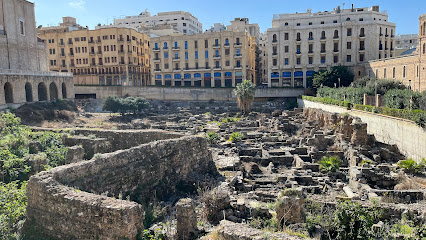
Hamra
Experience the vibrant heart of Beirut in Hamra, a dynamic district blending history, culture, and modern attractions.
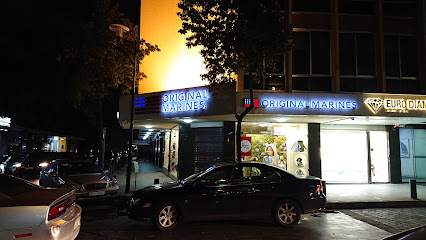
Hamidiye Clock Tower
Explore the Hamidiye Clock Tower in Beirut, a symbol of Ottoman heritage and Lebanese resilience, offering a glimpse into the city's rich history.
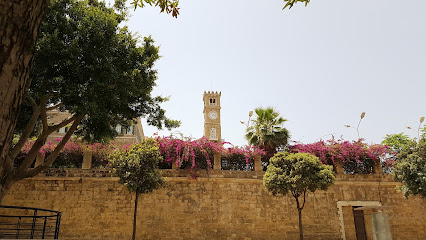
The Memory Tree
Reflect on Lebanese history at The Memory Tree, a poignant monument in Beirut commemorating the Great Famine and the nation's enduring spirit.
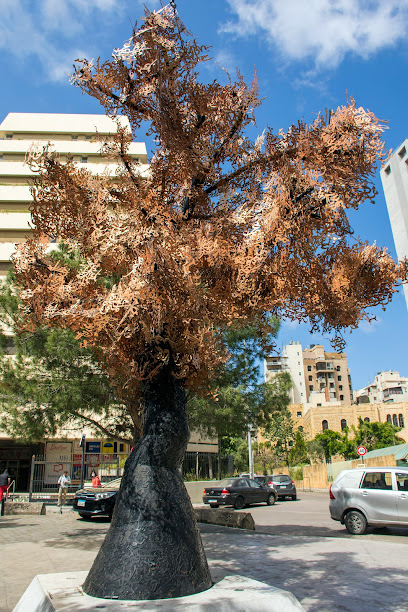
The Red House
Discover The Red House in Beirut: A historic landmark with a vibrant past, offering a glimpse into Lebanon's rich cultural heritage.
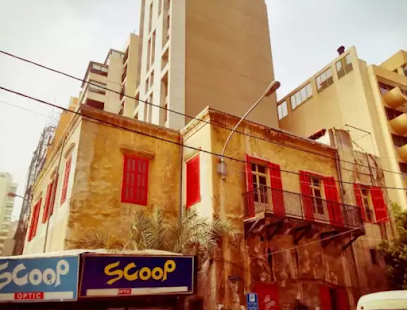
Unmissable attractions to see
Al Raouche Rocks
Explore the breathtaking Al Raouche Rocks in Beirut, a stunning natural landmark that combines rich history with mesmerizing coastal views.
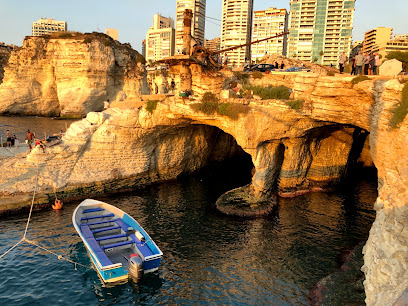
Corniche El Manara, Ain El Mraiseh, Beirut
Explore the scenic Corniche El Manara in Beirut, where the Mediterranean meets vibrant city life, offering stunning views and delightful dining experiences.
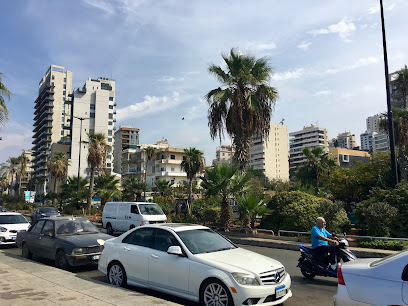
MIM Mineral Museum
Discover the stunning world of minerals and geology at the MIM Mineral Museum in Beirut, a captivating attraction for all ages.
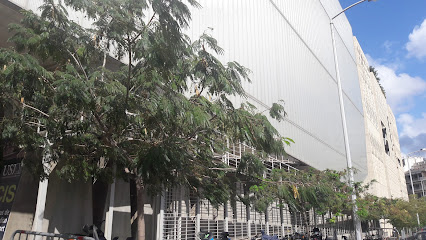
Berytus Cardo & Decumanus Maximus
Discover the captivating ruins of Berytus Cardo & Decumanus Maximus, a historical gem in the heart of Beirut, showcasing the city's ancient Roman heritage.
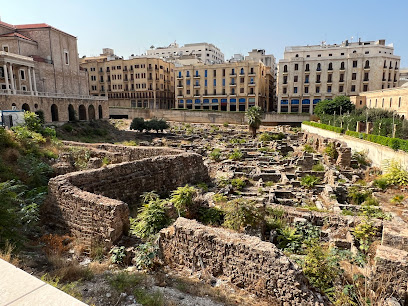
Sakhrat al-Rawchieh ، صخرة الروشة
Discover the breathtaking views and unique beauty of Sakhrat al-Rawchieh, an iconic natural landmark in Beirut, Lebanon.
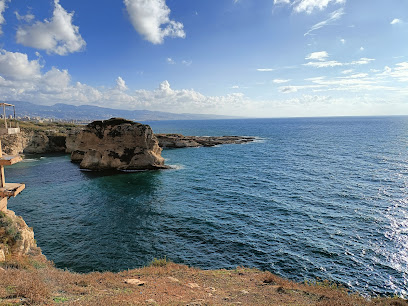
Roman Bath Ruins
Explore the Roman Bath Ruins in Beirut, an ancient marvel showcasing rich Roman history and architecture amid the vibrant culture of modern Lebanon.
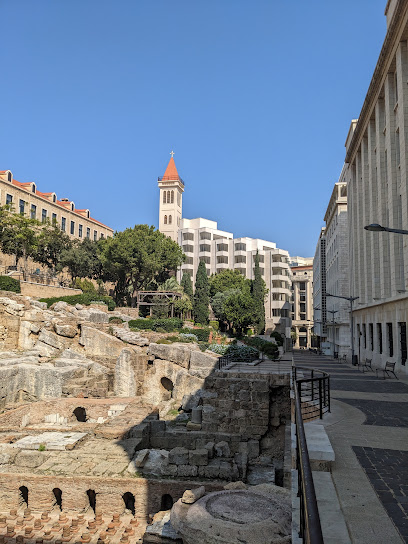
Essential places to dine
T-Marbouta
Experience authentic Lebanese flavors at T-Marbouta in the heart of Beirut's lively Hamra Square.
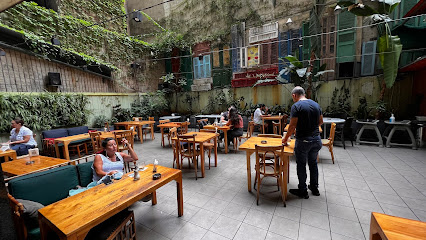
zaatar w zeit
Experience authentic Lebanese cuisine at Zaatar w Zeit in Beirut - where traditional flavors meet modern dining.
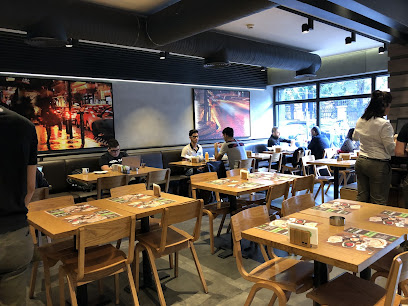
مطعم مزيان - Mezyan
Savor the rich flavors of Lebanon at Mezyan Restaurant - where every dish tells a story.
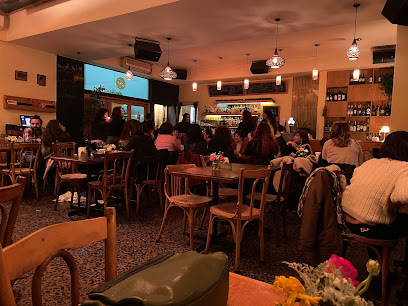
Ka3kaya
Experience authentic Lebanese cuisine at Ka3kaya in Beirut's vibrant Hamra district – where tradition meets flavor.
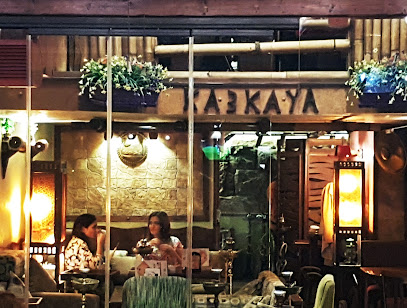
Bedivere Eatery and Tavern
Discover exquisite flavors at Bedivere Eatery and Tavern in Beirut – where local cuisine meets modern culinary artistry.
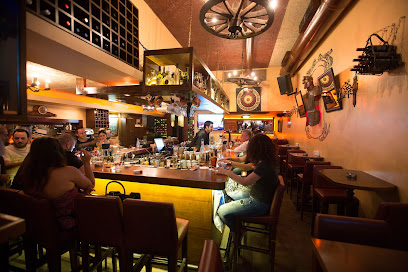
Appetito Trattoria Hamra
Experience authentic Italian cuisine in the heart of Beirut at Appetito Trattoria Hamra - where every meal feels like a celebration.
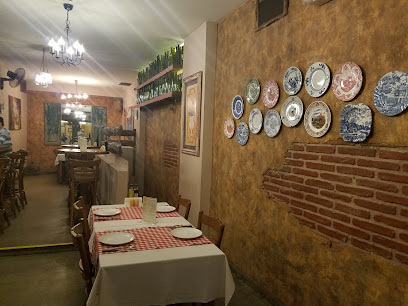
Abu Naim
Savor authentic Lebanese flavors at Abu Naim in Hamra – where tradition meets modern dining in Beirut.
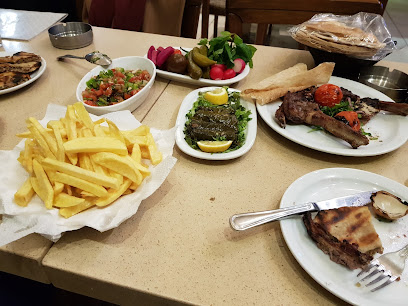
L'Autre Bistro
Experience authentic French cuisine at L'Autre Bistro in Beirut - where culinary excellence meets warm hospitality.
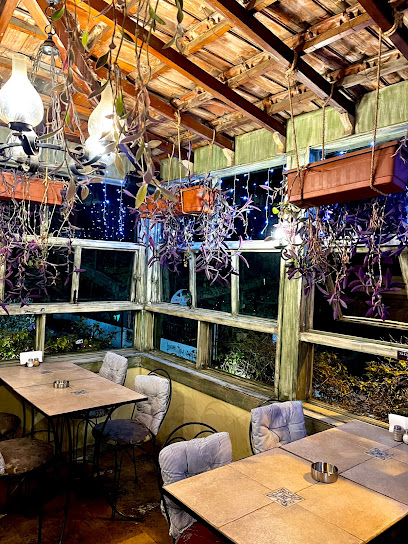
رصيف بيروت Raseef Beirut
Experience the vibrant flavors of Lebanon at Raseef Beirut - where tradition meets modern culinary art in an inviting atmosphere.
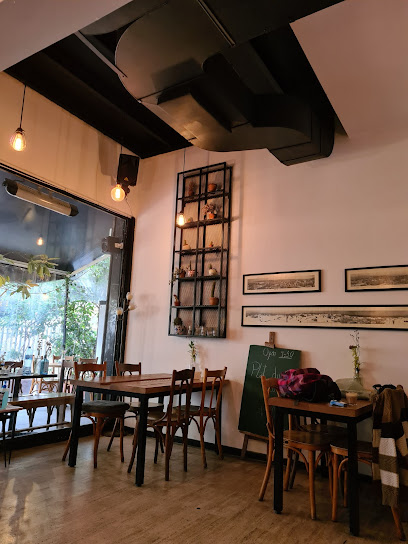
Little Beirut Lebanon
Discover authentic Lebanese flavors at Little Beirut - where every dish tells a story of culinary heritage in the heart of Hamra.
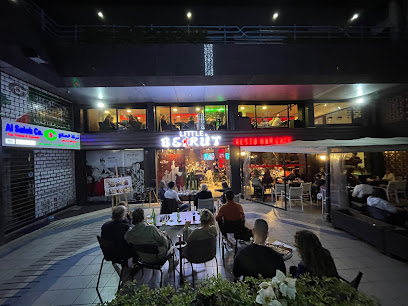
Markets, malls and hidden boutiques
Eldorado Shopping Center
Explore Eldorado Shopping Center in Beirut for a delightful shopping experience with a wide range of affordable clothing, footwear, and household items.
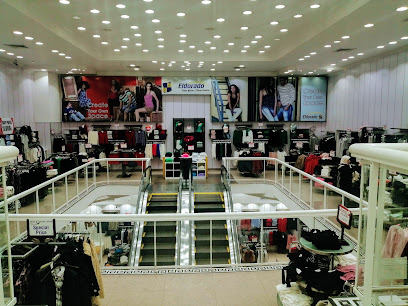
Ants Hamra
Discover the unique fashion finds at Ants Hamra, a must-visit clothing store in the heart of Beirut, blending local styles with contemporary trends.
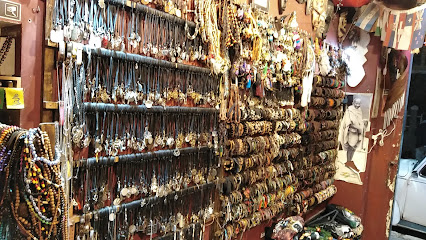
Nakhle.Ets Hamra
Explore Nakhle.Ets Hamra in Beirut for exquisite women's clothing and accessories that blend modern trends with Lebanese fashion heritage.
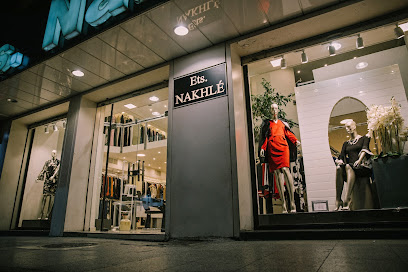
Hamra vintage
Discover unique antiques at Hamra Vintage, an enchanting store in Baabda showcasing Lebanon's rich history through timeless treasures.
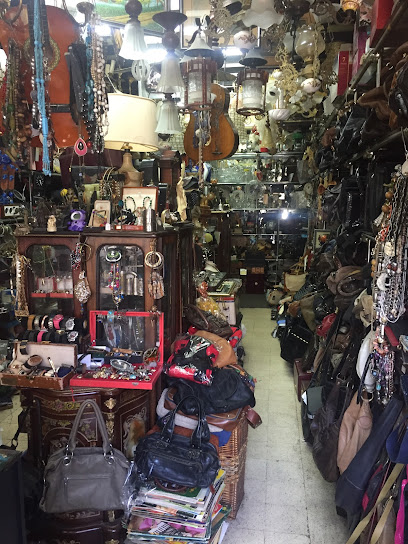
D's CORNER
Discover unique gifts and local crafts at D's Corner, a charming shop in Beirut's vibrant Jeanne d'Arc Street, perfect for tourists seeking authentic souvenirs.
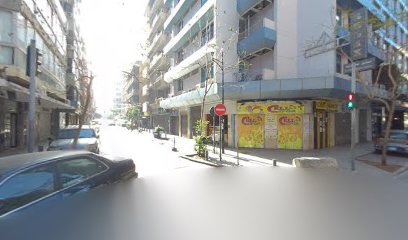
Les Amis Boutique
Explore the latest fashion trends at Les Amis Boutique, a chic women's clothing store in the heart of Beirut's Hamra district.
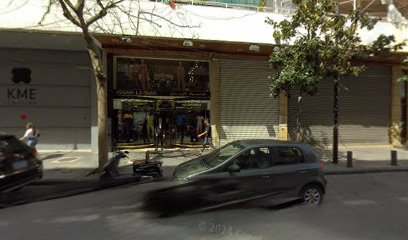
Mirou Hamra
Explore the vibrant fashion scene at Mirou Hamra, Beirut's go-to clothing store for trendy styles and unique local designs.
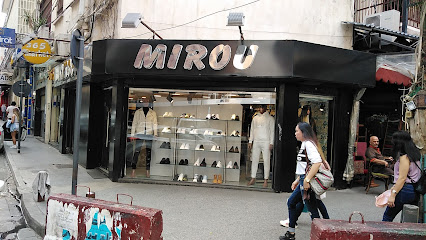
Amir
Discover authentic Lebanese souvenirs at Amir, Beirut's enchanting shop filled with unique crafts and local delicacies, perfect for every traveler.
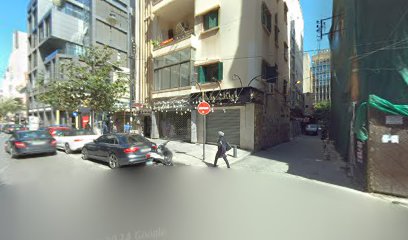
Artisanat sidani
Explore Artisanat Sidani in Beirut for unique clothing that blends traditional craftsmanship with modern styles, showcasing the best of Lebanese fashion.
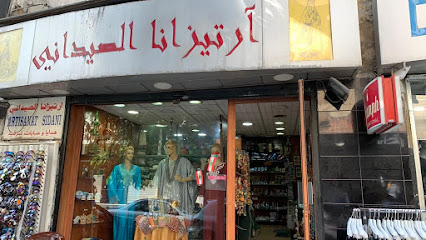
Al-Sirat Shopping
Explore Al-Sirat Shopping Mall in Beirut: A vibrant shopping destination offering everything from beauty products to unique gifts.
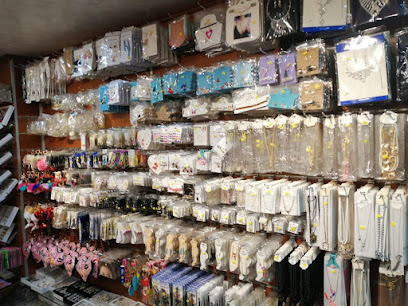
Essential bars & hidden hideouts
Neighbors Pub
Experience the vibrant nightlife at Neighbors Pub, a beloved spot in Beirut offering delicious food, refreshing drinks, and a lively atmosphere.
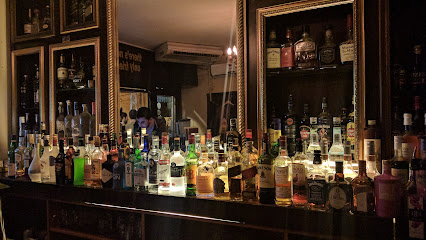
Ales & Tales
Experience the vibrant nightlife of Beirut at Ales & Tales, where craft ales and electrifying music create unforgettable moments.
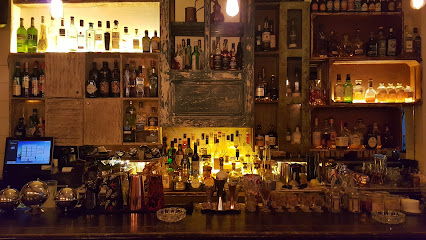
Li Beirut
Experience the vibrant nightlife of Beirut at Li Beirut, where cocktails and music create an unforgettable atmosphere.
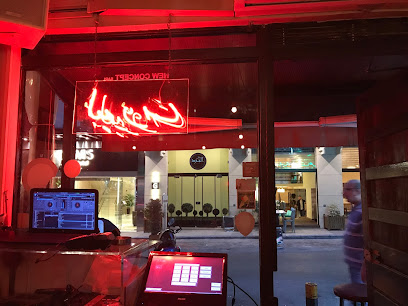
Rabbit Hole Pub & Grub
Discover the lively atmosphere of Rabbit Hole Pub & Grub in Beirut, where delicious food and drinks meet vibrant nightlife.
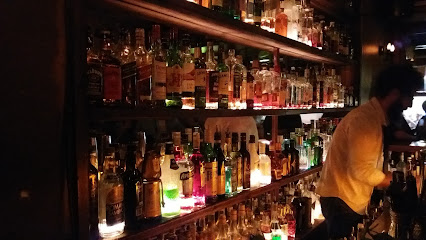
Propaganda Gin Room
Discover Propaganda Gin Room in Beirut - a stylish lounge with a remarkable gin selection and a vibrant atmosphere perfect for unwinding.
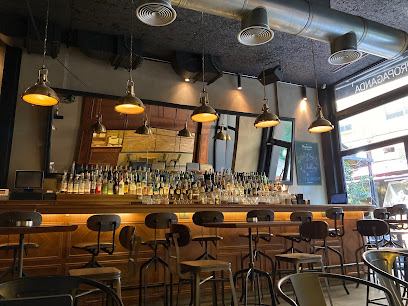
The Goose
Discover the vibrant atmosphere and delectable flavors at The Goose, a must-visit bar and restaurant in Beirut's charming Hamra district.
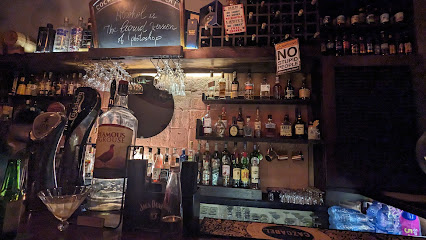
Rainze
Discover Rainze, a lively pub on Makdessi Street in Beirut, where great drinks and vibrant nightlife create unforgettable experiences.
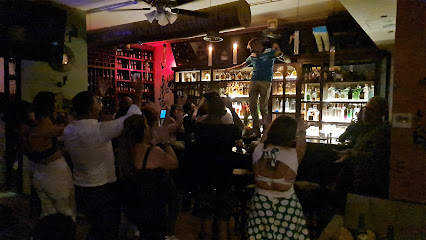
Hamra Express cocktail bar
Experience the vibrant cocktail culture at Hamra Express, a must-visit pub in the heart of Beirut's nightlife scene, perfect for socializing and relaxation.
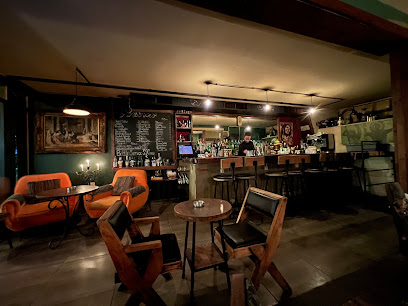
Unplug
Experience the vibrant nightlife of Beirut at Unplug, a lively bar known for its friendly atmosphere and diverse drink selection.
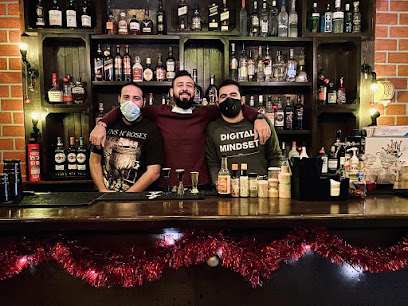
The Twelve Bar
Experience the vibrant nightlife of Beirut at The Twelve Bar, where friendly faces and great drinks create unforgettable memories.
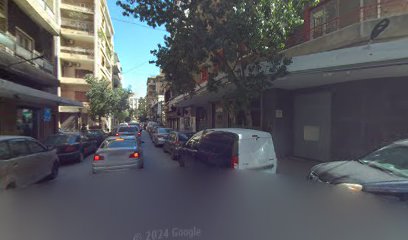
Local Phrases
-
- Helloمرحبا
[marhaba] - Goodbyeوداعا
[wada'an] - Yesنعم
[naam] - Noلا
[la] - Please/You're welcomeمن فضلك/على الرحب والسعة
[min fadlak/ala arrahb wasaah] - Thank youشكرا
[shukran] - Excuse me/Sorryعذرا
[aathirana] - How are you?كيف حالك؟
[kayfa halak?] - Fine. And you?بخير. وأنت؟
[bikhayr. wa'ant?] - Do you speak English?هل تتحدث الإنجليزية؟
[hal tatahadath al'inglizia?] - I don't understandأنا لا أفهم
[ana la afham]
- Helloمرحبا
-
- I'd like to see the menu, pleaseأرغب في رؤية القائمة، من فضلك
[urghab fi ru'ya alqaima, min fadlak] - I don't eat meatأنا لا آكل اللحم
[ana la aakul allahm] - Cheers!صحتين!
[sahhtain!] - I would like to pay, pleaseأود أن أدفع، من فضلك
[awad an adfa', min fadlak]
- I'd like to see the menu, pleaseأرغب في رؤية القائمة، من فضلك
-
- Help!مساعدة!
[musa'ada!] - Go away!ارحل!
[irhal!] - Call the Police!اتصل بالشرطة!
[atasil bialshurta!] - Call a doctor!اتصل بطبيب!
[atasil tabib!] - I'm lostلقد ضللت الطريق
[liqad dalalt altariq] - I'm illأنا مريض
[ana mareed]
- Help!مساعدة!
-
- I'd like to buy...أرغب في شراء...
[urghab fi shira...] - I'm just lookingأنا فقط أتفرج
[ana faqat atfarrag] - How much is it?بكم؟
[bikam?] - That's too expensiveهذا غالي جدا
[hatha ghali jiddan] - Can you lower the price?هل يمكنك خفض السعر؟
[hal yumkinuk khafd alsar?]
- I'd like to buy...أرغب في شراء...
-
- What time is it?كم الساعة؟
[kam alsaa'a?] - It's one o'clockالساعة الواحدة
[alsaa'a alwahida] - Half past (10)العاشرة والنصف
[al'ashira wannahf] - Morningصباح
[sabah] - Afternoonبعد الظهر
[ba'd alduhur] - Eveningمساء
[masa'] - Yesterdayأمس
[ams] - Todayاليوم
[alyawm] - Tomorrowغدا
[ghadan] - 1واحد
[wahid] - 2اثنان
[ithnan] - 3ثلاثة
[thalatha] - 4أربعة
[arba'a] - 5خمسة
[khamsa] - 6ستة
[sitta] - 7سبعة
[sab'a] - 8ثمانية
[thamaniya] - 9تسعة
[tis'a] - 10عشرة
[ashara]
- What time is it?كم الساعة؟
-
- Where's a/the...?أين...؟
[ayn...?] - What's the address?ما هو العنوان؟
[ma huwa al'anaan?] - Can you show me (on the map)?هل يمكنك أن تريني (على الخريطة)؟
[hal yumkinuk 'an tureeni (ala alkhareeta)?] - When's the next (bus)?متى يأتي الحافلة التالية؟
[mata ya'ti alhafilat altaaliya?] - A ticket (to ....)تذكرة (إلى...)
[tadhkira (ila...)]
- Where's a/the...?أين...؟
History of Hamra
-
Hamra began to take shape during the late Ottoman period in the 19th century, evolving as a hub for commerce and education. The neighborhood became known for its vibrant cultural life, attracting intellectuals and artists. The establishment of the American University of Beirut in 1866 further cemented Hamra's reputation as a center of learning and modernity.
-
Under the French Mandate from 1920 to 1943, Hamra experienced significant urban development. The area saw the construction of numerous buildings featuring modernist architectural styles. This period also witnessed the rise of cafes and bookstores, which contributed to Hamra's reputation as a meeting place for writers, poets, and political activists.
-
The Lebanese Civil War (1975-1990) profoundly impacted Hamra, which served as a battleground between various factions. Despite the destruction, the resilience of the local community led to gradual reconstruction efforts post-war. Hamra transformed into a symbol of cultural revival, with many establishments reopening and new businesses emerging.
-
Today, Hamra is a vibrant neighborhood that showcases a blend of traditional Lebanese culture and modern influences. The area is known for its diverse dining options, lively nightlife, and artistic expressions. Hamra continues to attract both locals and tourists, serving as a microcosm of Beirut's dynamic identity.
-
The 2006 war between Israel and Hezbollah also affected Hamra, leading to infrastructural damage and economic setbacks. However, the neighborhood demonstrated remarkable resilience, with the community coming together to support local businesses and cultural initiatives. This period highlighted the enduring spirit of Hamra and its significance in the broader context of Beirut.
Hamra Essentials
-
Hamra is centrally located in Beirut, making it easily accessible from other neighborhoods. From downtown Beirut, you can take a short taxi ride or use a local bus. The Metro de Beirut does not currently operate, but rideshare services like Uber are widely available. If you're coming from the airport, a taxi or arranged transport will take you to Hamra in approximately 20-30 minutes, depending on traffic.
-
Hamra is a walkable neighborhood, with many attractions, cafes, and shops within easy reach. You can also use local taxis or rideshare apps for longer distances. While public transport options like buses are available, they may not be as reliable. Bicycles can be rented from various local shops, giving you a unique way to explore the area.
-
Hamra is generally safe for tourists, but standard precautions are advised. Avoid isolated streets at night and keep your belongings secure in crowded places. Areas like the outskirts of Hamra, closer to Beirut's southern neighborhoods, may have higher crime rates, particularly related to petty theft. Always stay aware of your surroundings.
-
In case of an emergency, dial 112 for police assistance or 175 for medical emergencies. Local hospitals and clinics are available in Hamra, with the American University of Beirut Medical Center being one of the prominent healthcare facilities. Ensure you have travel insurance that covers emergencies and have a list of helpful contacts handy.
-
Fashion: Do dress modestly when visiting religious sites and be mindful of cultural sensitivities. Avoid overly revealing clothing. Religion: Do respect local customs, especially during prayers. Public Transport: Do be courteous to fellow passengers and offer your seat to the elderly. Don't eat or drink on public transport. Greetings: Do greet with a smile and a handshake; a slight bow is polite. Eating & Drinking: Do try local dishes and accept food from locals. Don't refuse hospitality or criticize local cuisine.
-
To experience Hamra like a local, visit the vibrant street markets and cafes, where you can taste authentic Lebanese pastries and coffee. Engage in conversations with shopkeepers, who are often eager to share their stories. Don't miss the chance to explore art galleries and the American University of Beirut campus, which has beautiful architecture and gardens. Lastly, try to attend local events or music performances to immerse yourself in the culture.
Nearby Cities to Hamra
-
Things To Do in Broummana
-
Things To Do in Aley
-
Things To Do in Jounieh
-
Things To Do in Deir el Qamar
-
Things To Do in Byblos
-
Things To Do in Sidon
-
Things To Do in Zahle
-
Things To Do in Batroun
-
Things To Do in Anjar
-
Things To Do in Rashaya
-
Things To Do in Marjayoun
-
Things To Do in Bcharre
-
Things To Do in Baalbek
-
Things To Do in Tyre
-
Things To Do in Rosh HaNikra











